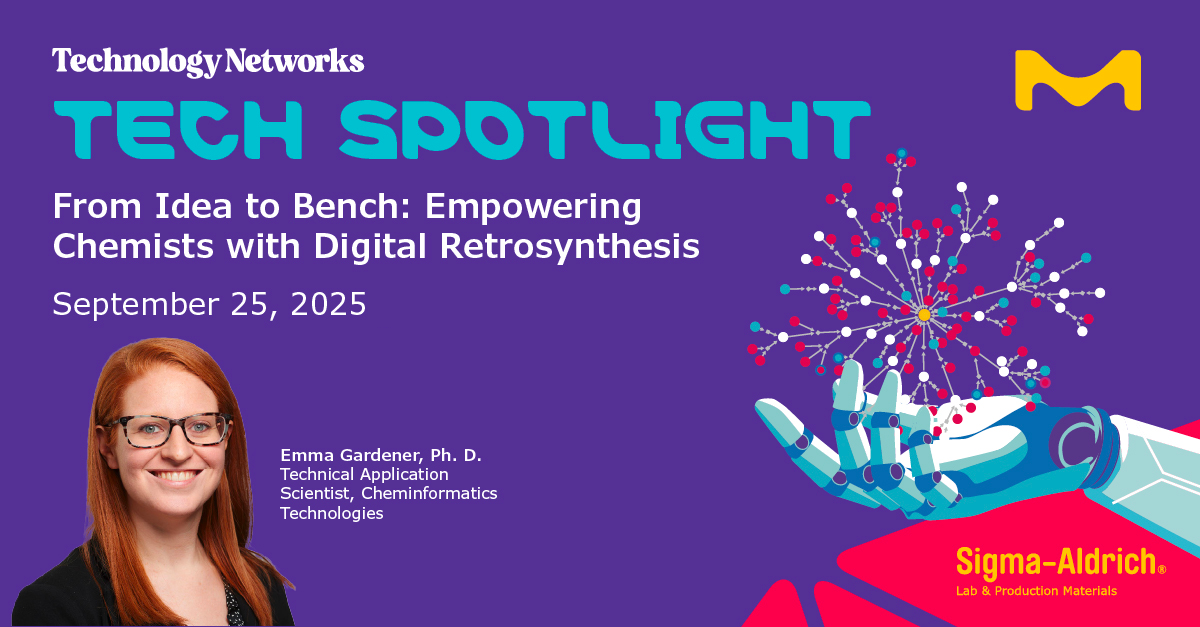WEBINAR:
From Idea to Bench
Empowering Chemists with Digital Retrosynthesis

September 25, 2025
8AM PDT | 11AM EDT | 4PM BST | 5PM CEST
on Technology Networks “Tech Spotlight: Lab of the Future 2025”
Discover how digital retrosynthesis is reshaping modern laboratories. This session explores how AI-supported synthesis planning enables chemists to rapidly design efficient, cost-effective, and sustainable synthetic routes. Attendees will learn how digital tools can reduce manual effort, accelerate research timelines, and support greener chemistry by optimizing reaction pathways and resource use. See real-world examples of how automated route design overcomes common bottlenecks, fosters creativity, and empowers researchers to focus on breakthrough science.
Whether you’re a bench chemist or a lab manager, this webinar will equip you with practical strategies to future-proof your research and maximize the impact of your lab in the era of smart, connected science.
Learning Objectives:
- Understand how digital retrosynthesis accelerates and improves synthetic route design for novel and known molecules
- Learn best practices for integrating AI-supported synthesis planning into daily research workflows to boost productivity and creativity
- Explore strategies for greener chemistry, including how digital tools help minimize waste, reduce hazardous reagents, and improve atom economy
- Identify how automation and informatics can free up scientists’ time for high-value, innovative research
Speaker

Emma Gardener, Ph. D.
Technical Application Scientist, Cheminformatics Technologies
Emma Gardener received her undergraduate degree from Trinity College and worked for several years as a research associate in the biotechnology industry before completing her Ph.D. in Organic Chemistry at Brown University as an NSF graduate research fellow. She studied under Prof. Jason Sello, where she worked on developing new methodology for the synthesis of antibacterial peptide natural products. In 2018, she joined the Cheminformatics Technologies department as a Technical Application Scientist and is responsible for the commercial licensing of the retrosynthetic design software, SYNTHIA®.
